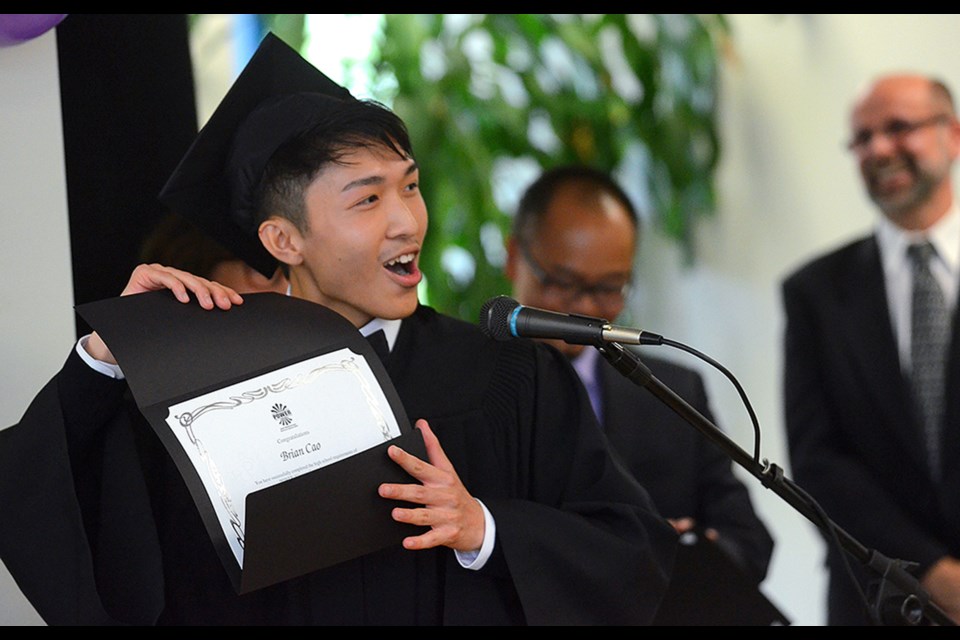“It’s really great that all you are here to support us weirdos. Thank you.”
Few school officials would pick the word “weirdos” to describe the 12 grads who gathered for POWER Alternate Secondary School’s grad last week, but that’s how grad Lorilynn Grey decided to thank staff, friends and family for coming out.
And she and her fellow grads do have a certain square-peg-in-a-round-hole thing in common.
“It’s a school for anybody for whom the regular school system is not going to work, and the reasons vary from person to person,” vice-principal Steve Inniss said of POWER, which operates out of a space in the Columbia Square Shopping Center. “It could be that somebody just can’t stand the crowds. It could be that it’s the entire set of formal structures that’s not working for them.”
Based on what the grads had to say at their convocation, POWER has worked for them in a way regular schools didn’t.
“I always had the worst time in school,” said Kat Smith in her speech. “By the time I hit Grade 8 it became a chore and a pain to come. We found (POWER), and then it became a joy to come every day and work and meet these wonderful people and make friends that I’ll have for life.”
Most of her fellow grads said they never thought they’d graduate until they came to the program.
Others, like Brian Cao, were downright defiant about their accomplishments since making the change from regular schools.
“It just feels great to have all the people trash talk you and then see it backfire,” he said in a speech much cheered by fellow grads, friends and family. “They said I would never graduate. Look at this, baby! Let’s go! They said I would never get a scholarship. What’s this right here, baby! Let’s go!”
Through all of their rousing, tearful and humorous speeches, however, all of the grads made it clear staff at the school played a big part in their success – even using the L-word liberally.
“I treat them as family at this point,” said Cody Koronko.
For Inniss, who’s witnessed seven POWER convocations, the annual event underlines the importance of the program’s work.
“I think about how much graduation changes lives for people,” he said. “It’s the biggest single thing that a person can do in terms of their personal future, their economic future, everything else, and I think of how unlikely that graduation seemed for those people not that long ago.”



